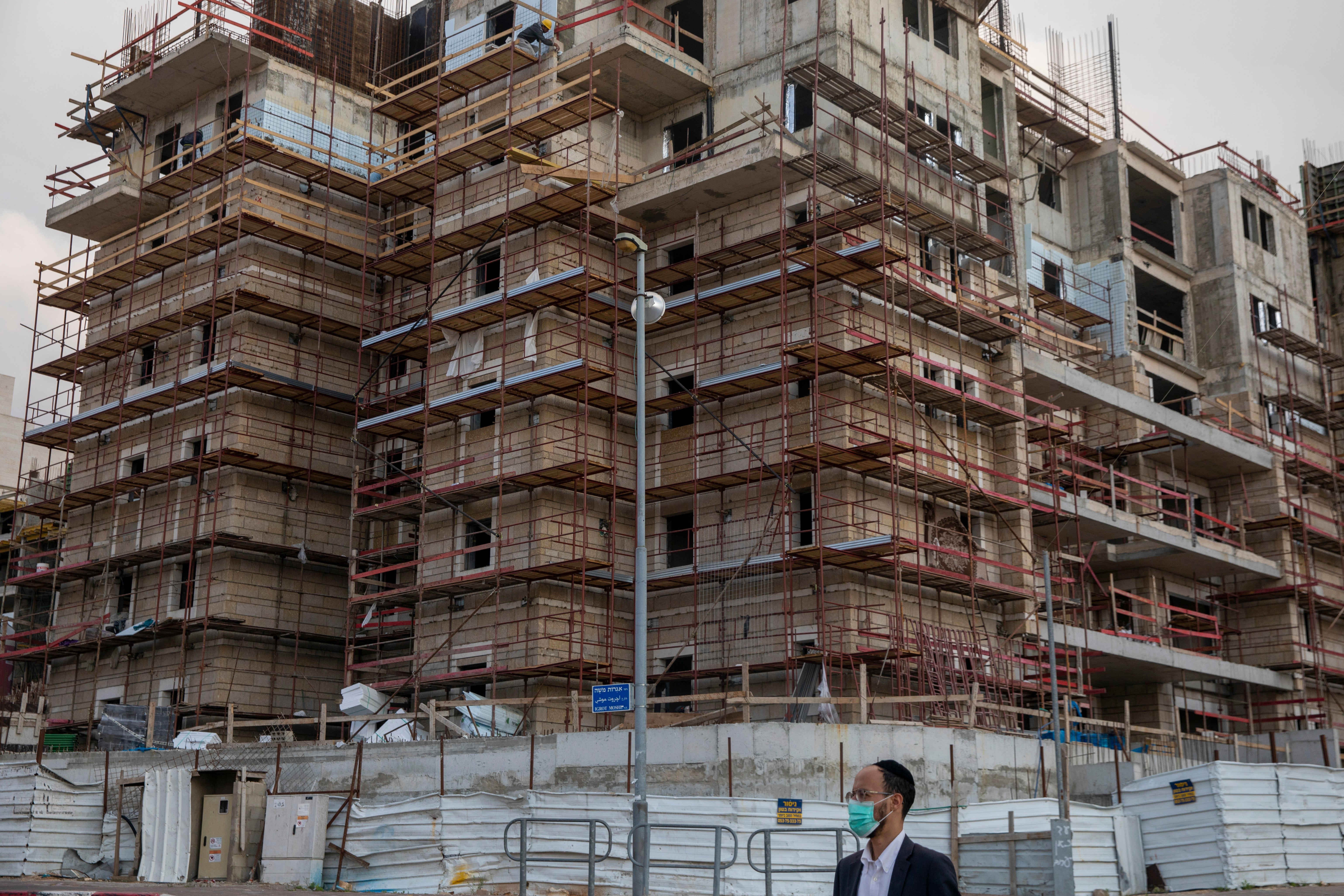Israel advances plans to build 1,200 homes in sensitive east Jerusalem settlement
Approval of the 1,200 homes is further setback to dwindling hopes of internationally backed partition deal

Your support helps us to tell the story
From reproductive rights to climate change to Big Tech, The Independent is on the ground when the story is developing. Whether it's investigating the financials of Elon Musk's pro-Trump PAC or producing our latest documentary, 'The A Word', which shines a light on the American women fighting for reproductive rights, we know how important it is to parse out the facts from the messaging.
At such a critical moment in US history, we need reporters on the ground. Your donation allows us to keep sending journalists to speak to both sides of the story.
The Independent is trusted by Americans across the entire political spectrum. And unlike many other quality news outlets, we choose not to lock Americans out of our reporting and analysis with paywalls. We believe quality journalism should be available to everyone, paid for by those who can afford it.
Your support makes all the difference.A settlement watchdog group said on Sunday that Israel is moving ahead with new construction of hundreds of homes in a strategic East Jerusalem settlement that threatens to cut off parts of the city claimed by Palestinians from the West Bank.
The group, Peace Now, said the Israel Land Authority announced on its website Sunday that it had opened up tenders for more than 1,200 new homes in the key settlement of Givat Hamatos in East Jerusalem.
The move may test ties with the incoming administration of president-elect Joe Biden, who is expected to take a firmer tack against Israeli settlement expansion after four years of a more lenient policy under president Donald Trump, who has largely turned a blind eye to settlement construction.
The approval of the 1,200 homes is a further setback to dwindling hopes of an internationally backed partition deal that would enable the establishment of a Palestinian state alongside Israel.
The Palestinians along with critics of Israel's settlement policy say construction in the Givat Hamatos settlement would seal off the Palestinian city of Bethlehem and the southern West Bank from East Jerusalem, further cutting off access for the Palestinians to that part of the city.
"This is a continuation of the current Israeli government policy in destroying the two-state solution," said Nabil Abu Rudeineh, a spokesperson to Palestinian president Mahmoud Abbas.
Sunday's development comes as secretary of state Mike Pompeo is set to travel to the region this week, where he is expected to visit an Israeli settlement in the West Bank – a stop previous US secretaries of state have avoided. Palestinian officials, who have cut off ties with the Trump administration over its policies in favour of Israel, have denounced Pompeo's planned visit. Palestinian prime minister Mohammad Shtayyeh tweeted on Friday that this was a "dangerous precedent" that legalises settlements.
Brian Reeves, a spokesperson for Peace Now, said the move Sunday allows contractors to begin bidding on the tenders, a process that will conclude just days before Biden's inauguration. Construction could then begin within months.
"This is a lethal blow to the prospects for peace," Peace Now said in a statement, adding that Israel was "taking advantage of the final weeks of the Trump administration in order to set facts on the ground that will be exceedingly hard to undo in order to achieve peace".
The Palestinians seek the West Bank, along with the Gaza Strip and East Jerusalem – areas Israel captured in the 1967 Mideast war – for their future state. With nearly 500,000 settlers now living in the West Bank, and over 220,000 more in East Jerusalem, the Palestinians say the chances of establishing their state are quickly dwindling.
Israel views the entire city of Jerusalem as its eternal, undivided capital.
Much of Jerusalem is already blocked off from the West Bank by a series of checkpoints and the separation barrier. Israel has previously moved forward on plans to build in E1, another sensitive area East of Jerusalem that critics say, with Givat Hamatos, would block East Jerusalem off entirely from the West Bank.
After four years of Trump, whose policies were hugely favourable toward Israel and who shrugged at settlement building, Israel faces a new reality under Biden, who will likely restore the previous US position that viewed settlements as illegitimate and an obstacle to peace with the Palestinians.
Under previous administrations, Israel held back on building plans in the most sensitive areas, including Givat Hamatos, amid opposition by both Washington and the international community, which saw such plans as dashing hopes for a contiguous Palestinian state.
But Israel has been emboldened under Trump, approving thousands of new settlement homes during his term, including in highly contested areas. Many of those plans are expected to break ground after Biden assumes the presidency.
With the Trump administration in its final weeks in office, Israel may be aiming to push ahead on contentious projects before Biden's term starts, a move that could set it on the wrong foot with the new president.
AP





Join our commenting forum
Join thought-provoking conversations, follow other Independent readers and see their replies
Comments